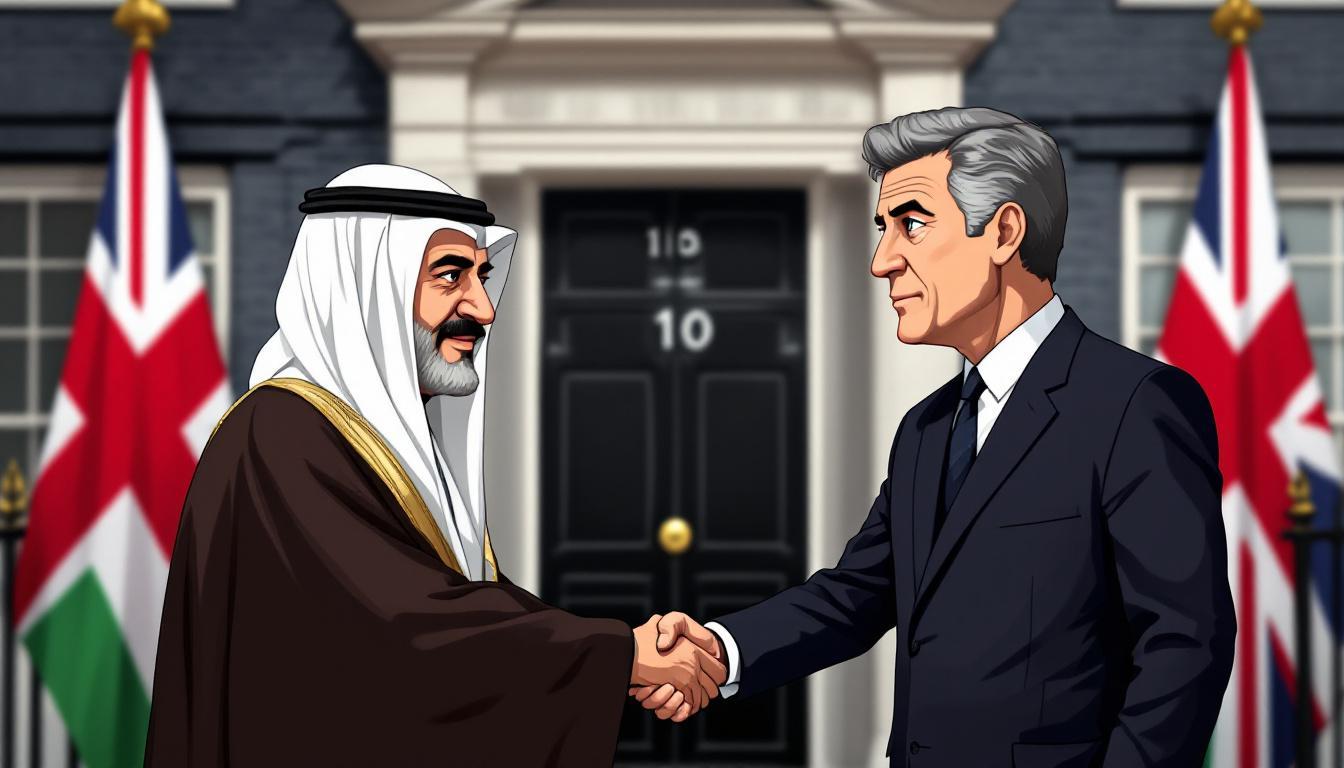Sir Keir Starmer welcomed King Abdullah II of Jordan to Downing Street on Thursday, as the violence in Gaza continues to escalate. The meeting, underscored by the ongoing humanitarian crisis, showcased the UK’s commitment to address the complex realities of the Middle East. Starmer commended Abdullah for his "leadership, particularly in the region", highlighting the necessity of collaborative efforts to resolve the immediate conflict and work towards longer-term stability.
In his remarks, Starmer emphasised a dual objective: reaching a ceasefire as swiftly as possible and facilitating the rapid delivery of humanitarian aid to those affected by the ongoing hostilities. The Prime Minister stated, “We share the objective of getting back to a ceasefire just as quickly as we can, getting those hostages out and getting humanitarian aid in fast and at speed.” Meanwhile, King Abdullah noted the timeliness of his visit given the gravity of the current situation, stating that the exchanges during their meeting would be beneficial not only to Jordan but also to other countries in the region and in Europe.
This diplomatic engagement comes on the backdrop of the UK’s proposal at the UN Security Council for Israel to lift restrictions on aid entering Gaza, a resolution that faced a veto from the United States. This interplay of international relations illustrates the complexities surrounding humanitarian efforts in the region, with various nations balancing their strategic alliances against the pressing needs for immediate humanitarian action.
King Abdullah has previously articulated concerns about the deteriorating humanitarian conditions, warning that ongoing Israeli attacks could escalate into a broader regional conflict. During their discussions, both leaders raised alarms about the violence affecting the West Bank and the implications of banning UNRWA operations, which serve as critical lifelines for Palestinian refugees. The importance of a two-state solution was reiterated as a pathway to lasting peace, with both leaders acknowledging the necessity for concerted international efforts to pressure for a resolution.
The urgency surrounding the meeting reflects a wider acknowledgment among world leaders that continued inaction risks exacerbating the situation. As the humanitarian crisis deepens, Abdullah’s visit underscores Jordan's pivotal role as a mediator in the region and its significance in discussions aimed at fostering stability amidst ongoing turbulence. The outcomes of their discussions may pave the way for further diplomatic initiatives aimed at mitigating the impacts of the conflict not only in Gaza but across the Middle East.
📌 Reference Map:
- Paragraph 1 – [1], [2]
- Paragraph 2 – [1], [3], [6]
- Paragraph 3 – [4], [5]
- Paragraph 4 – [2], [3], [7]
Source: Noah Wire Services
